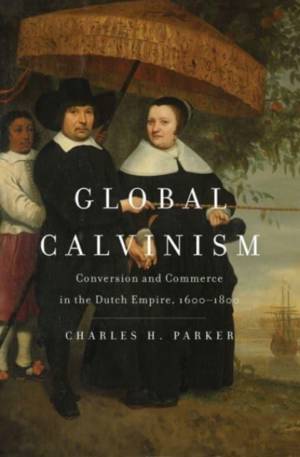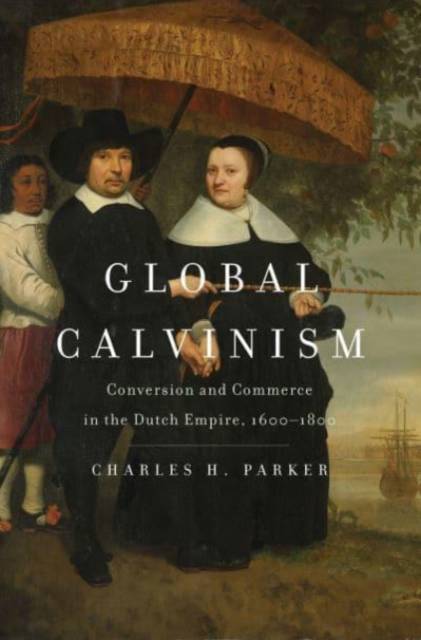
- Afhalen na 1 uur in een winkel met voorraad
- Gratis thuislevering in België vanaf € 30
- Ruim aanbod met 7 miljoen producten
- Afhalen na 1 uur in een winkel met voorraad
- Gratis thuislevering in België vanaf € 30
- Ruim aanbod met 7 miljoen producten
Zoeken
Global Calvinism
Conversion and Commerce in the Dutch Empire, 1600-1800
Charles H Parker
Hardcover | Engels
€ 43,95
+ 87 punten
Omschrijving
A comprehensive study of the connection between Calvinist missions and Dutch imperial expansion during the early modern period "A tour de force offering the reader the best study of global Calvinism in the realms of the Dutch East India Company."--Ronnie Po-Chia Hsia, editor, Calvinism and Religious Toleration in the Dutch Golden Age Calvinism went global in the seventeenth and eighteenth centuries, as close to a thousand Dutch Reformed ministers, along with hundreds of lay chaplains, attached themselves to the Dutch East India and West India companies. Across Asia, Africa, and the Americas where the trading companies set up operation, Dutch ministers sought to convert "pagans," "Moors," Jews, and Catholics and to spread the cultural influence of Protestant Christianity. As Dutch ministers labored under the auspices of the trading companies, the missionary project coalesced, sometimes grudgingly but often readily, with empire building and mercantile capitalism. Simultaneously, Calvinism became entangled with societies around the world as encounters with Indigenous peoples shaped the development of European religious and intellectual history. Though historians have traditionally treated the Protestant and European expansion as unrelated developments, Charles H. Parker the explores the global reach of Dutch Calvinism as an intermingling of a Protestant faith, commerce, and empire.
Specificaties
Betrokkenen
- Auteur(s):
- Uitgeverij:
Inhoud
- Aantal bladzijden:
- 408
- Taal:
- Engels
Eigenschappen
- Productcode (EAN):
- 9780300236057
- Verschijningsdatum:
- 11/01/2022
- Uitvoering:
- Hardcover
- Formaat:
- Genaaid
- Afmetingen:
- 160 mm x 239 mm
- Gewicht:
- 680 g

Alleen bij Standaard Boekhandel
+ 87 punten op je klantenkaart van Standaard Boekhandel
Beoordelingen
We publiceren alleen reviews die voldoen aan de voorwaarden voor reviews. Bekijk onze voorwaarden voor reviews.











